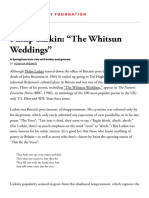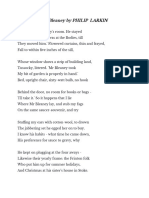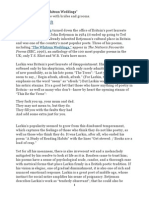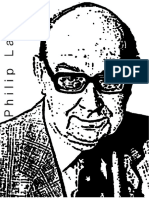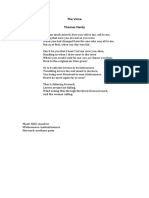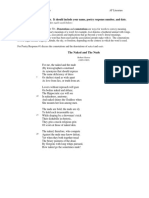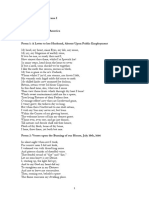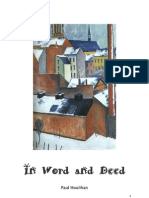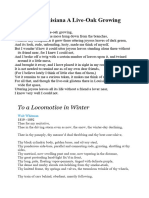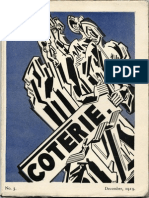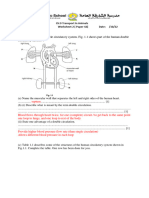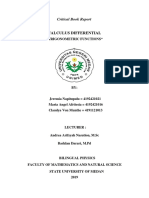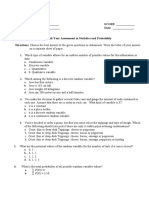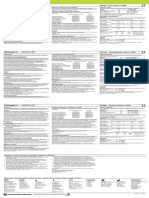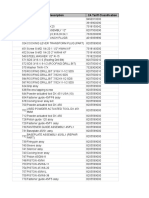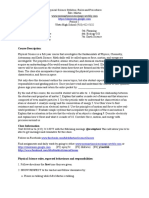0% found this document useful (0 votes)
24 views13 pagesTCPD Unit II
The document features a collection of poems by various authors, including Edith Sitwell, Anne Michaels, Philip Larkin, and Ted Hughes, exploring themes of loss, memory, and the human experience. Each poem presents a unique perspective on life, death, and the passage of time, using vivid imagery and emotional depth. The works reflect on the complexities of existence, relationships, and the search for meaning amidst suffering and change.
Uploaded by
Peeper DeeperCopyright
© © All Rights Reserved
We take content rights seriously. If you suspect this is your content, claim it here.
Available Formats
Download as PDF, TXT or read online on Scribd
0% found this document useful (0 votes)
24 views13 pagesTCPD Unit II
The document features a collection of poems by various authors, including Edith Sitwell, Anne Michaels, Philip Larkin, and Ted Hughes, exploring themes of loss, memory, and the human experience. Each poem presents a unique perspective on life, death, and the passage of time, using vivid imagery and emotional depth. The works reflect on the complexities of existence, relationships, and the search for meaning amidst suffering and change.
Uploaded by
Peeper DeeperCopyright
© © All Rights Reserved
We take content rights seriously. If you suspect this is your content, claim it here.
Available Formats
Download as PDF, TXT or read online on Scribd
/ 13











